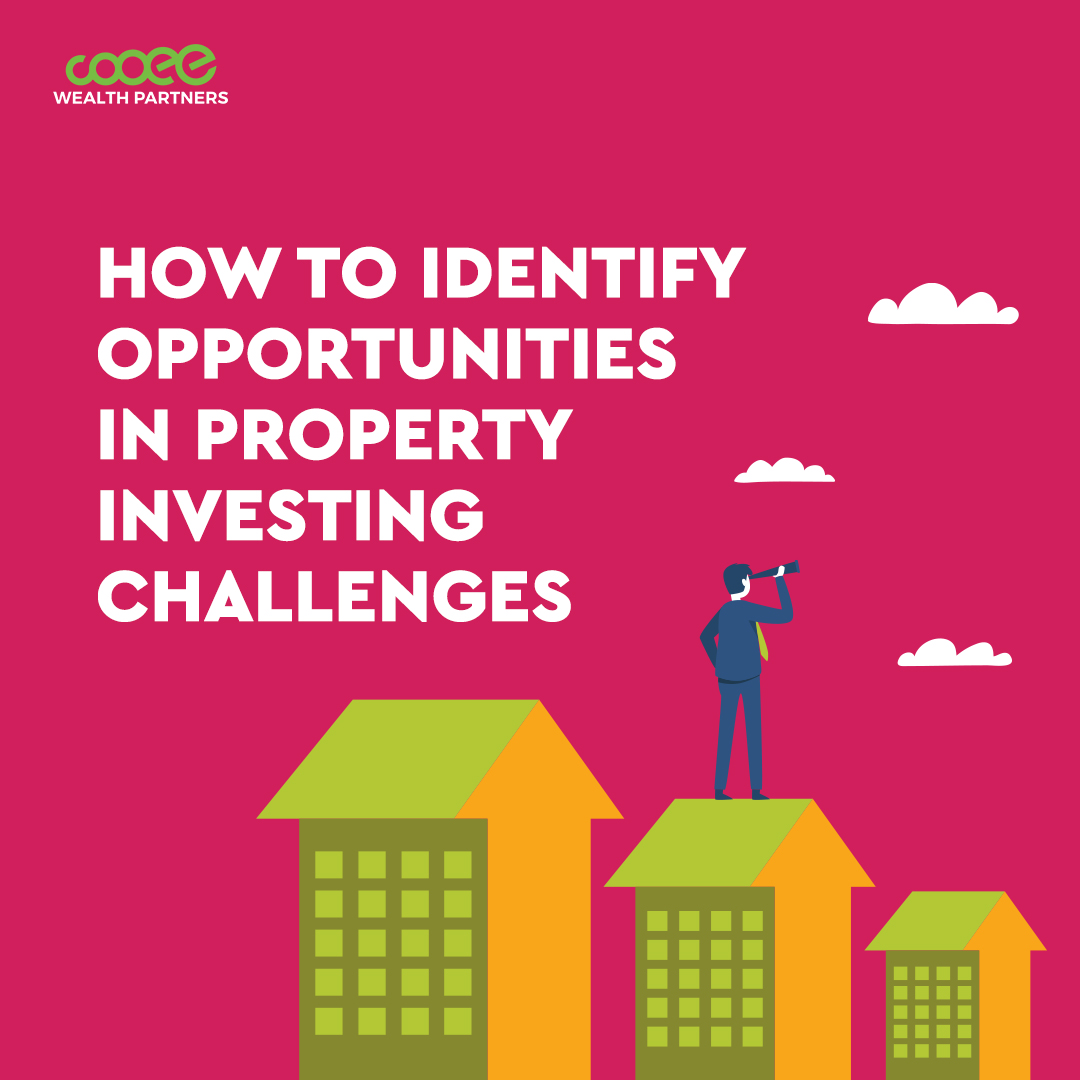
Chances are you’ve seen some of your favourite influencers (or more motivationally oriented friends) flinging around quotes on social media about how to gain any sort of growth, there has to be a little bit of discomfort.
As much as there’s a lot of misinformation rolling around out there, this particular sentiment is one that we can find ourselves agreeing with, particularly when you apply it to the property investment sphere.
Whether you’ve already got an investment property, have multiple investments or are just starting to dabble, all property investors face different challenges along the way.
Some of these challenges may seem like minor hiccups, whereas others may seem completely insurmountable. But with every challenge you face, there is also an opportunity you can seize.
3 common investment challenges you may face (and the potential opportunities for each one)
Here’s our list of the most common investment challenges our clients face, and how you can turn them into an opportunity not to be missed.
1. Insufficient equity or income to acquire property
So you want to buy some investment properties but you don’t know where to start financially. In our experience, the two biggest roadblocks to an investor’s ability to accumulate or acquire properties are either that they don’t have enough equity in their portfolio, or they don’t have enough income or surplus cash flow to service their loans.
This isn’t really rocket science – it’s money in, money out. There are always those anomaly stories of someone who ditched take away for a year and suddenly managed to become a property magnate. Don’t fall for the headlines, there’s always more to the story.
Potential opportunity from this challenge: Restructure your property portfolios to focus on either capital growth or income, depending on your needs
Look at this as a positive opportunity for you to sit down and start making some well-defined, realistic financial goals.
Where do you want to be? When do you want to get there? What do you need to do to make this happen?
By identifying your goals and the specific limitation that applies to you as a property investor, you can develop a strategy that serves your purposes.
The potential opportunity here is that you now have the chance to restructure your portfolio to focus on either capital growth or income, depending on your individual needs.
What do we mean by this?
Well, if you’re an investor with high income but not a lot of equity, then you need to focus on a capital growth strategy. This means that you’re looking to find properties that will increase in overall value. This is about building long-term equity by purchasing properties that have the potential to earn big profits for you when you decide to sell in the future.
On the flip side, if you’ve got heaps of property equity but a more limited income, you need to consider a strategy that is skewed towards rental yields.
Investing this way means that you’re looking for properties that will provide a steady cash flow to help cover the costs of the property, and to pay down the mortgage. It is also worth mentioning that these properties can sometimes be more susceptible to economic shocks, and tenancy problems can leave the property vacant for too long.
Whichever way you’re leaning it’s always a good idea to get some good advice.
2. Land tax implications
Nothing makes investors shudder quite like taxes and, yes, land taxes can provide a nasty shock if you’re not prepared.
2023 has once again brought some changes to land tax thresholds, and each of these vary from state to state so it’s important that you keep yourself informed of what you’re liable for, for each of your properties. Outside of your principal place of residence, land tax will apply regardless of whether or not you’re currently earning income on the property.
Land tax is calculated on the total value of your taxable land that is over and above the land tax threshold. This is across all properties, not individual ones, so if the combined value of the land doesn’t exceed the threshold, no tax is payable. Land taxes are also based on the average assessed value over the last three years so when the property market goes through a boom (like it is now), by the second and third year of ownership, you’ll start to feel the tax biting a little.
So how is tax an opportunity, you ask? It’s a good opportunity for you to consider diversifying your property portfolio.
Potential opportunity from this challenge: Diversification across states or territories can limit land tax implications, and diversify the markets you’re trying to generate capital growth
By diversification, we don’t mean investing in some commercial and some residential (although, depending on your goals that might be a good idea too). What we’re talking about here is geographical diversification.
Because each state has different thresholds on their land taxes, and they are by nature a state-based tax, it’s possible for you to benefit from the tax-free threshold in each state. For example, owning three properties in three different states will result in a materially lower annual tax liability than owning three properties in one state.
Scenarios such as this are where you’ll really start to see the value of having both an excellent financial adviser and a savvy tax accountant. A tax accountant can help you see the tax benefits of either option, while a financial adviser can provide a holistic view that considers both investment and tax advice.
3. Asset protection concerns
For any investor, asset protection can and should be a major concern when it comes to making any further investments.
Some of the biggest concerns with asset protection tend to circle around notions of estate planning, wills, and the dreaded capital gains tax. With the right advice, these are all easily resolved issues.
Potential opportunity from this challenge: Trusts, companies and SMSFs can be used to help provide asset protection
The opportunity here is for you to make sure that you have the best possible structures in place to protect you, and your family’s investments. Things like trusts, companies and self-managed super funds can be used to help protect your assets.
First and foremost, yes, you absolutely should always have a well-prepared, up-to-date will and enduring power of attorney (EPA).
No one really wants to think about dying but, particularly when you have a decent portfolio behind you, you really need to have the legal documents in place to protect what you’ve worked hard to build. These documents should also be making considerations for your other assets like superannuation and any trust funds or assets in a trust that you may also have.
Having good asset-protecting structures in place is another great way of using up your portfolio. This is where you can start to think about putting things in place like discretionary trusts or companies to not only protect your assets from outside creditors but also to reduce the overall tax burden.
Self-managed super funds (SMSFs) can also be an excellent tool to help protect your assets. In Australia, SMSFs can protect any assets in your fund from litigation or bankruptcy. So in the unfortunate situation where either of these events occur, your benefits are protected, even if you have to make a withdrawal to cover some of your living expenses.
This all may sound like a lot to get your head around, and that’s okay. The important takeaway here is that, yes, investing can and will present challenges along the way, but these challenges shouldn’t prevent you from achieving your goals.
It all comes down to having the right, personalised advice for your specific situation and future goals. By partnering with a capable financial adviser and having a well-structured strategy, you can discover the opportunities in these challenges and find ways to enrich your investment journey.

If you’re not sure where to start, or you’re keen to start taking the first steps, book a meeting with one of our Wealth Partners today.








